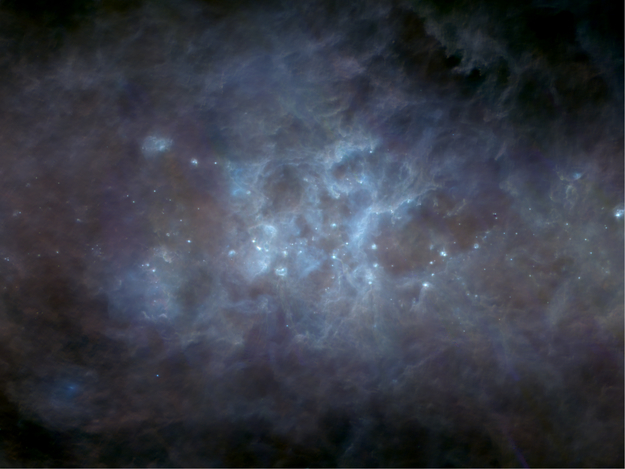AKARI view of the Cygnus region in the Milky Way

Date: 01 April 2015
Satellite: AKARI
Copyright: JAXA
This image from the AKARI infrared space observatory shows the central region of the Cygnus constellation, and clearly displays the rich stock of dust in the Milky Way.
This dust is part of the interstellar medium, which also contains gas. These infrared images reveal the detailed distribution of the interstellar medium, highlighting areas where bright, new stars are about to emerge in the Milky Way.
Far-infrared light is the key wavelength range for investigating stars and planet formation. When the interstellar medium gathers together under the attraction of its own gravity, it forms a giant molecular cloud. These can be hundreds of light-years across. Denser parts, just a few tenths of a light-year across, are known as molecular cloud cores. These are where stars and planets form.
AKARI images, such as this one, are the only images in which scientists can closely examine the entire giant molecular cloud with the resolution of a molecular cloud core.
This false-colour image, spanning 20°×15°, is constructed from three far-infrared bands: blue represents 65 micrometres, green shows 90 micrometres and red codes the 140 micrometre wavelength. The image is part of AKARI's recently released all-sky survey.
The mission observed more than 99% of the entire sky over a period of 16 months. The all-sky images have a resolution of 1–1.5 arcminutes, in four wavelengths: 65, 90, 140 and 160 micrometres.
AKARI was a Japan Aerospace Exploration Agency (JAXA) project with ESA's participation.
